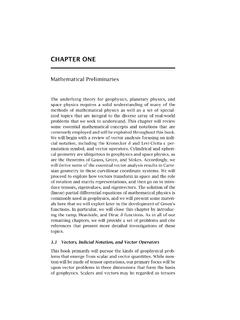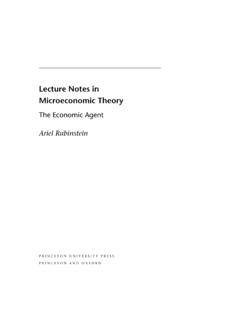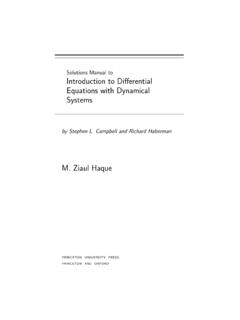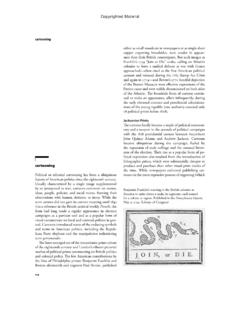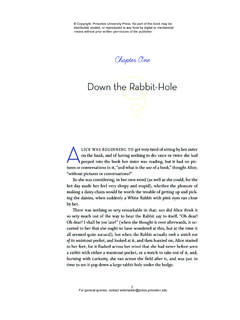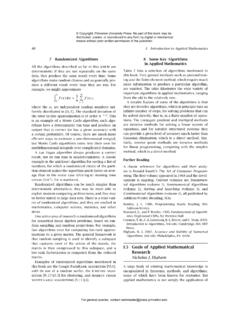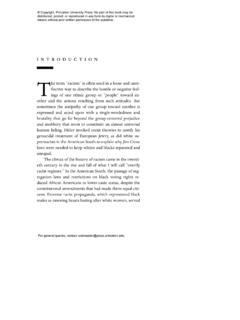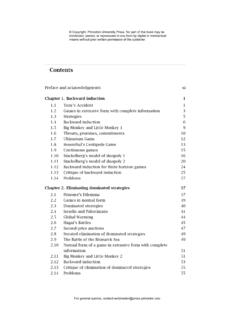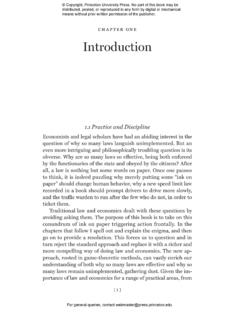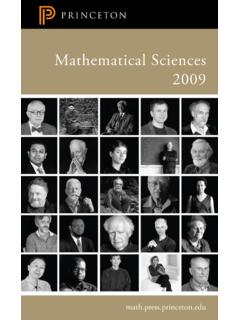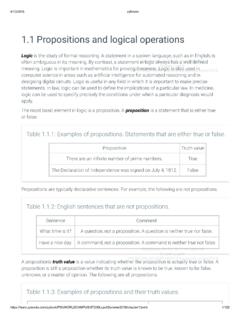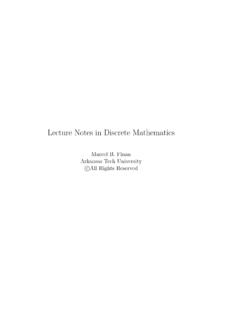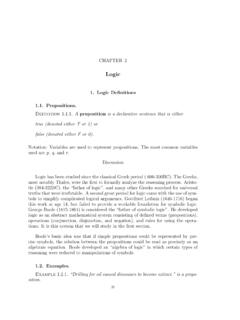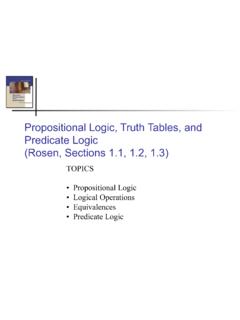Transcription of Propositions and Arguments - Princeton University
1 Copyrighted Material 1 Propositions and Arguments What Is Logic? Somebody who wants to do a good job of measuring up a room for purposes of cutting and laying carpet needs to know some basic mathematics but mathe matics is not the science of room measuring or carpet cutting. In mathematics one talks about angles, lengths, areas, and so on, and one discusses the laws governing them: if this length is smaller than that one, then that angle must be bigger than this one, and so on. Walls and carpets are things that have lengths and areas, so knowing the general laws governing the latter is helpful when it comes to specific tasks such as cutting a roll of carpet in such a way as to min imize the number of cuts and amount of waste.
2 Yet although knowing basic mathematics is essential to being able to measure carpets well, mathematics is not rightly seen as the science of carpet measuring. Rather, mathematics is an abstract science which gets applied to problems about carpet. While mathe matics does indeed tell us deeply useful things about how to cut carpets, telling us these things is not essential to it: from the point of view of mathematics, it is enough that there be angles, lengths, and areas considered in the abstract; it does not matter if there are no carpets or floors. Logic is often described as the study of Knowing basic logic is indeed essential to being able to reason well yet it would be misleading to say that human reasoning is the primary subject matter of logic.
3 Rather, logic stands to reasoning as mathematics stands to carpet cutting. Suppose you are looking for your keys, and you know they are either in your pocket, on the table, in the drawer, or in the car. You have checked the first three and the keys aren t there, so you reason that they must be in the car. This is a good way to reason. Why? Because reasoning this way cannot lead from true premises or starting points to a false conclusion or end point. As Charles Peirce put it in the nineteenth century, when modern logic was being developed: The object of reasoning is to find out, from the consideration of what we already know, something else which we do not know.
4 Consequently, reasoning is good if it Copyrighted Material be such as to give a true conclusion from true premises, and not otherwise. [Peirce, 1877, para. 365] This is where logic comes in. Logic concerns itself with Propositions things that are true or false and their components, and it seeks to discover laws gov erning the relationships between the truth or falsity of different Propositions . One such law is that if a proposition offers a fixed number of alternatives ( , the keys are either (i) in your pocket, (ii) on the table, (iii) in the drawer, or (iv) in the car), and all but one of them are false, then the overall proposition cannot be true unless the remaining alternative is true.
5 Such general laws about truth can usefully be applied in reasoning: it is because the general law holds that the particular piece of reasoning we imagined above is a good one. The law tells us that if the keys really are in one of the four spots, and are not in any of the first three, then they must be in the fourth; hence the reasoning cannot lead from a true starting point to a false conclusion. Nevertheless, this does not mean that logic is itself the science of reasoning. Rather, logic is the science of truth. (Note that by science we mean simply systematic study.)2 As Gottlob Frege, one of the pioneers of modern logic, put it: Just as beautiful points the ways for aesthetics and good for ethics, so do words like true for logic.
6 All sciences have truth as their goal; but logic is also concerned with it in a quite different way: logic has much the same relation to truth as physics has to weight or heat. To discover truths is the task of all sciences; it falls to logic to discern the laws of truth. [Frege, 1918 19, 351] One of the goals of a baker is to produce hot things (freshly baked loaves). It is not the goal of a baker to develop a full understanding of the laws of heat: that is the goal of the physicist. Similarly, the physicist wants to produce true things (true theories about the world) but it is not the goal of physics to develop a full understanding of the laws of truth. That is the goal of the logician.
7 The task in logic is to develop a framework in which we can give a detailed yet fully general representation of Propositions ( , those things which are true or false) and their components, and identify the general laws governing the ways in which truth distributes itself across them. Logic, then, is primarily concerned with truth, not with reasoning. Yet logic is very usefully applied to reasoning for we want to avoid reasoning in ways that could lead us from true starting points to false conclusions. Furthermore, just as mathematics can be applied to many other things besides carpet cutting, logic can also be applied to many other things apart from human reasoning.
8 For example, logic plays a fundamental role in computer science and com puting technology, it has important applications to the study of natural and artificial languages, and it plays a central role in the theoretical foundations of mathematics itself. 4 Chapter 1 Propositions and Arguments Copyrighted Material Propositions We said that logic is concerned with the laws of truth. Our primary objects of study in logic will therefore be those things which can be true or false and so it will be convenient for us to have a word for such entities. We shall use the term proposition for this purpose. That is, Propositions are those things which can be true or false.
9 Now what sort of things are Propositions , and what is involved in a proposition s being true or false? The fundamental idea is this: a proposition is a claim about how things are it represents the world as being some way; it is true if the world is that way, and otherwise it is false. This idea goes back at least as far as Plato and Aristotle: SOCRATES: But how about truth, then? You would acknowledge that there is in words a true and a false? HERMOGENES: Certainly. S: And there are true and false Propositions ? H: To be sure. S: And a true proposition says that which is, and a false proposition says that which is not? H: Yes, what other answer is possible? [Plato, c.]
10 360 bc] We define what the true and the false are. To say of what is that it is not, or of what is not that it is, is false, while to say of what is that it is, and of what is not that it is not, is true. [Aristotle, c. 350 bc-a,BookIV(r) 7] In contrast, nonpropositions do not represent the world as being thus or so: they are not claims about how things are. Hence, nonpropositions cannot be said to be true or false. It cannot be said that the world is (or is not) the way a nonproposition represents it to be, because nonpropositions are not claims that the world is some Here are some examples of Propositions : 1. Snow is white. 2. The piano is a multistringed instrument.
